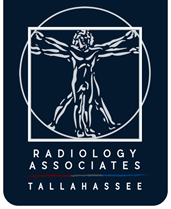Arthrography
Arthrography is a type of medical imaging used to help evaluate and diagnose joint conditions and unexplained pain. It is very effective at detecting disease within the ligaments, tendons and cartilage.
Learn More About Arthrography
Arthrography is a diagnostic tool performed in conjunction with MRI, CT or X-ray to evaluate joints, including hips, wrists, ankles, shoulders, knees, etc. This is a contrast injection into the joint that enhances the visualization of structures and aids the evaluation of joint abnormalities, such as cartilage tears and other injuries.
No special preparation is necessary before direct arthrography, unless you are on blood thinners. We require you to be off of these for 5 days. Food and fluid intake do not need to be restricted, unless a sedative will be given.
You should inform your physician of any medications you are taking and if you have any kidney problems or allergies, especially to iodinated or gadolinium-based contrast materials. Also, inform your doctor about recent illnesses or other medical conditions.
Some MRI examinations may require you to receive an injection of contrast into the bloodstream. Some of this contrast material is absorbed into the joint resulting in an indirect arthrogram. The radiologist or technologist may ask if you have asthma, or allergies of any kind, such as an allergy to iodine or x-ray contrast material, drugs, food, or environmental agents. However, the contrast material used for an MRI exam, called gadolinium, does not contain iodine and is less likely to cause side effects or an allergic reaction.
Tell the radiologist if you have any serious health problems or if you have recently had surgery. Some conditions, such as severe kidney disease, may prevent you from being given MRI or CT arthrogram contrast material.
Your physician’s office should contact one of our registered nurses to schedule your procedure. We will then contact you, schedule your appointment, and give you pre-procedure instructions.
Following the procedure, one of our Musculoskeletal Radiologists will interpret your exam and send a report to your physician within 5 business days. Contact your referring physician for any information pertaining to the findings.
Typically your referring physician will schedule an appointment for you. If you have been asked to schedule the appointment yourself, please have your physician’s order and any pre-authorization information required by your insurance or health plan provider in hand, and call 850-878-4127.
The radiologist will insert a needle into the joint using X-ray guidance and inject a contrast material. If needed for further diagnosis, you will be taken to the CT or MRI machines for more pictures. The contrast material may consist of both a standard iodine solution, which is detected by X-ray and a solution of gadolinium, which aids in the MRI images. The contrast is then absorbed by the lining of the joint into the bloodstream and excreted by the kidneys within a few hours of injection.
You may resume normal daily activities with the exception of athletic activities, which should be avoided for 24 hours. Athletes should consult their coach or trainer prior to resuming practice. You may experience some discomfort and swelling of the joint for a day or two after the arthrogram. You may treat the pain with over-the-counter non-steroidal anti-inflammatory medicines such as Advil or Tylenol. Ice packs for the first 24 hours (3-4 times up to 15 minutes per time) may be helpful, followed the next day with heat (4 times a day for 20 minutes each) if necessary.
What happens during your procedure can vary considerably depending on the procedure being performed and your specific circumstances. Prior to your procedure, we will explain in detail what to expect. If you have any questions, please call our office at 850-878-4107 and we will be happy to review your procedure.
Interventional Radiology is an area of radiology that specializes in performing minimally invasive, image-guided procedures. Many of these procedures have become the treatment of choice in many cases because they offer lower risk, less pain, and shorter recovery time compared to traditional surgical techniques.
Our dedicated registered nurses provide your physician easy access for scheduling of procedures. We strive to perform your procedure at the scheduled time and offer convenient, easy access to our facility and ample parking.
For more information on this and other radiology procedures, please visit www.radiologyinfo.org.
